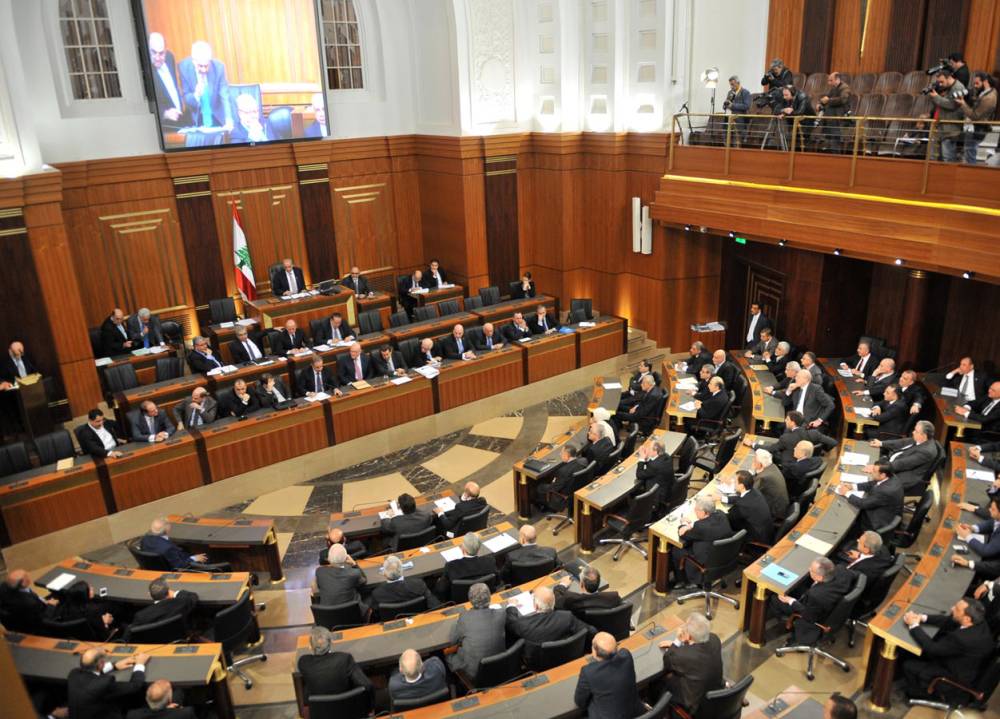The coming parliamentary stitch-up
Alex Rowell/Now Lebanon/May 20/16
After independents surprise at municipal polls, MPs move to ensure the same won’t happen in next year’s parliamentary elections
It’s a favorite journalist’s cliché – this writer has no doubt used it as abundantly as the next – that Lebanon’s politics is tremendously “divided” (as though politics did not, by definition, deal in division). To call a statement a cliché is not, of course, to say it’s false. But rarely, if ever, before have the conventional “divides” in Lebanon seemed more like distinctions without differences.
Whether it’s the reconciliation (and now electoral alliance) between the Lebanese Forces (LF) and the Free Patriotic Movement (FPM) after decades of literally murderous rivalry, or the unanimous opposition of all parties to demonstrators’ calls for the environment minister’s resignation during last summer’s environmental crisis (and the silence of March 14 when Amal Movement fanatics repeatedly assaulted those demonstrators), or March 8’s happy partnership with March 14 in this month’s municipal elections in the capital, what unites the establishment factions today is so strong they’ve forgotten what it was that “divided” them to begin with.
Indeed, the far more palpable rupture or segregation today isn’t among the traditional parties themselves, but rather between them and the new grassroots and civil-society-led currents that came of political age during the August 2015 trash catastrophe (which, incidentally, was never solved, and may be about to relapse once more). It’s the difference between the party faithful and the more than 100,000 who protested in Martyrs’ Square and Riad al-Solh nine months ago; between the 54% of Beirut voters who opted for the status quo coalition on May 8, and the 37% who chose Beirut Madinati.
Which is one salient reason why the revived interest this week in a parliamentary electoral law merits close attention. A debate over an electoral law might seem a strong contender for the dullest-sounding development of the year, but it happens to be crucial, because this is how the coming stitch-up by the establishment of any potential independent challengers in next year’s parliamentary elections is going to happen.
First, all sides profess themselves very displeased with the current winner-takes-all law, dubbed the ‘1960 law’ for the year it was first formulated. This is indeed what happened at the joint parliamentary committee meeting yesterday, with lawmakers from the LF, FPM, Future Movement and Hezbollah all duly rejecting the 1960 law, and the Kataeb’s Sami Gemayel going as far as to call it a “massacre.”
Second, the committee goes through the motions of ‘studying’ proposals for alternative laws. Again, this happened yesterday, with agreement reached that two “hybrid” laws – electing some MPs by proportional representation and the remainder by majoritarianism – would be contemplated at another meeting next week.
Third, and finally, when deliberations over alternative laws break down amid disagreements real and contrived, and if the elections aren’t unconstitutionally postponed for a third time, they’ll take place under one iteration or another of the 1960 law. While most MPs quoted after yesterday’s meeting insisted nothing of the sort would happen, the FPM’s Alain Aoun broke ranks by admitting the committee was essentially just “killing time,” and lamenting his colleagues’ “mockery of public opinion by [the claim] that we’re working on a new law.”
This is for the simple reason that proportionality – always in reality unpopular with the key powerbrokers – has never posed as much of a threat to the establishment as it does today. This is especially true of the two groups who, ostensibly, have been the most open to proportionality in the past: the Christian parties and Hezbollah. According to preliminary results from Beirut’s municipal elections earlier this month, it was in Christian districts more than anywhere else that the nonpartisan technocrats of Beirut Madinati made headway. As for the Party of God, surely the most undertold story of this municipal election season has been the proliferation of opposing contestants in what ought to be its ‘safest’ terrain – the Bekaa Valley, the South, and Beirut’s southern suburbs. That unaffiliated rivals were able to gain over 40% of the vote in as critical a city as Baalbek cannot have pleased Hezbollah’s leadership, who are unlikely to want to see the experience repeated at the parliamentary polls next year.
In that sense, the new independents can draw no small amount of satisfaction. They’ve truly put the wind up the ruling establishment, and it’s plain that the arc of history, frustratingly lengthy though it may be, is bending in their favor. At the same time, however, the parties are now on their guard, and no one should be in any doubt about their capabilities, and resilience. The sectarian client-patron networks that form the basis of Lebanon’s political system, so often derided as weak and unstable, have in reality survived a World War (1939-45); three Arab-Israeli wars (1948, 1967, 1973); the rise of Jamal Abd al-Nasser (with its attendant frenzy of military coups elsewhere in the region); two civil wars (1958, 1975-90) and subsequent occupations by both Israel and Syria; three further rounds of fighting with Israel (1993, 1996, 2006); and now a civil war in neighboring Syria; and have done so essentially unscathed and unchanged in any fundamental way. Maneuvers like the coming one on the electoral law should serve to remind that, for the time being, the big boys are still firmly in the saddle.




















